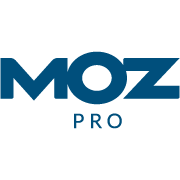Yes, SEO software may be accessible from different devices and platforms. With the growing trend of remote work and mobile business operations, many SEO software vendors now provide web-based or cloud-based solutions that can be used from any device with an internet connection. Some software also provides mobile apps for convenient access on smartphones and tablets. This allows you to monitor and manage your SEO efforts at any time and from any device or platform.
List of 20 Best SEO Software
CanIRank is a SEO software designed for ambitious SEOs, startups, and small businesses. Outshine your competitors with our one-of-a-kind platform that doesnt just provide data, but delivers valuable insights and personalized recommendations to boost...Read More CanIRank
CocoScan is a SEO tool that helps you detect and fix any indexing and crawling problems on your website in real-time. Scan unlimited pages and instantly view the results as they are generated, allowing you to stay on top of your websites indexation...Read More CocoScan
Labrika is a SEO software that leverages artificial intelligence to continually evaluate over 200 vital ranking factors in real-time. It provides practical recommendations to increase website traffic and conversions, making it a complete solution for...Read More Labrika
NinjaSEO is a SEO tool to enhance your websites success. With thorough audits and advanced on-page grading, NinjaSEO is your key to increasing visibility and driving traffic. For only $14.99 per user, get access to 30+ apps that will take your online...Read More NinjaSEO
SME Networks Digital Marketing is a tool to reach out to over 60,000 SMEs and 50,000 B2C contacts all across India. With our comprehensive solution, you can now expand your brands reach to previously untapped regions. Our PAN India marketing strategy...Read More SME Networks Digital Marketing
BuzzSumo is a social media analytics tool that is trusted by renowned brands such as HubSpot and News Corp. It provides comprehensive analysis of engagement and uncovers successful keywords, allowing businesses to identify and create impactful conten...Read More BuzzSumo
Yo SEO Tools, and free webmaster tool designed to optimize your websites search engine performance. With a range of useful features, Yo SEO Tools helps you analyze and improve your sites visibility, allowing you to unleash its full potential with spe...Read More Yo SEO Tools
DigitalBullLeads the Local SEO audit software for elevating your position in the Map Pack and achieving a better ranking on Google local searches. It delivers an accurate Local SEO Score, enabling you to quickly pinpoint and fill in any loopholes in...Read More DigitalBullLeads
SharpAPI is a API infused with AI technology to optimize your operations. With a range of automated solutions, this dynamic platform is tailored for various sectors such as E-commerce, Marketing, Content Management, HR Tech, and Travel. Transform you...Read More SharpAPI
RankScience - the leading SEO software that combines A/B testing and data science to enhance your websites search rankings. By conducting thousands of experiments daily, it maximizes the impact of your SEO strategy. With RankScience, unleash the true...Read More RankScience
SEOSYN solution to boost your websites performance and drive customer traffic. Our all-inclusive website audit gives you valuable insights on page load speed, keyword optimization, Meta descriptions, and tags, enabling you to optimize your site for o...Read More Seosyn
SEO PowerSuite is a tool for boosting your websites SEO performance. With its cutting-edge features, this software will propel your site to the top of Google search results, leaving your competition in the dust. Watch your website traffic and profits...Read More SEO PowerSuite
HTMeLd, website optimization tool that enhances the performance of your website. By integrating images, style sheets, and scripts directly into the HTML, it eliminates the need for individual downloads, resulting in lightning-fast page loading. With...Read More HTMeLd
BrandWizard is solution designed to assist companies in efficiently managing their online presence and brand reputation. Our software allows you to easily maintain control over your digital footprint and monitor your brand across various digital plat...Read More BrandWizard
SEOptimer is an efficient SEO analysis tool that provides a thorough website audit within 30 seconds. With a detailed check of over 100 data points, it offers valuable recommendations for enhancing SEO rankings and increasing online presence for smal...Read More SEOptimer
HOTH Stars is a review management solution designed for small businesses and marketing teams. Stay on top of your online reputation with our powerful tools that help address negative reviews, monitor your brands image, and effortlessly share positive...Read More HOTH Stars
LongTailPro is a desktop software that simplifies the process of keyword research. In a matter of minutes, it enables you to uncover long tail keywords and find low-competition options to boost your Google rankings and attract quality traffic. Furthe...Read More LongTailPro
seoClarity is a SEO solution for enterprise teams. With advanced features for keyword analysis, content optimization, and technical SEO, it empowers businesses to enhance search visibility and drive organic traffic growth. Keep track of your performa...Read More seoClarity
SEO Toolkit is a tool for Web developers, hosting providers, and Web server administrators looking to boost their websites search engine visibility. A advanced techniques offer valuable recommendations for optimizing site content and increasing traff...Read More SEO Toolkit
Moz Pro is a SEO solution for boosting your websites visibility and surpassing your rivals. This comprehensive tool offers a keyword explorer and detailed analytics to drive targeted recommendations and track your progress. You can even test it out f...Read More Moz Pro
Learn More About SEO Software
- What Is SEO Software?
- What Are The Recent Trends In SEO Software?
- Benefits Of Using SEO Software
- Important Factors To Consider While Purchasing SEO Software?
- What Are The Key Features To Look For In SEO Software?
- Why Do Businesses Need SEO Software?
- How Much Time Is Required To Implement SEO Software?
- What Is The Level Of Customization Available In SEO Software?
- Which Industries Can Benefit The Most From SEO Software?
- Conclusion
What Is SEO Software?
SEO software is a powerful tool that enables businesses to improve their online exposure, boost visitors to their website, and eventually increase sales and revenue. It analyzes and optimizes websites to help them rank higher in search engine results pages (SERPs). This important software provides a diverse set of features and functionalities that can assist firms of all sizes and sectors.
Keyword research is a vital element of SEO software, allowing users to find the most relevant and high-performing terms for their target audience. This is critical for building a successful SEO strategy and optimizing website content. Furthermore, the platform provides insights into website statistics and performance, enabling organizations to monitor development and make data-driven decisions.
On-page optimization is an important part of SEO software. This includes improving website features like title tags, meta descriptions, and internal linking to boost the total SEO score. The software also assists businesses in identifying and resolving any technical issues that may be affecting their website's performance, such as broken links or duplicate material. Link building is another important aspect of SEO software.
It assists businesses in generating quality backlinks to their website, which is critical for growing website authority and enhancing search engine rankings. Furthermore, some SEO software includes tools for competitor analysis, which allows businesses to stay ahead of the competition and change their strategies accordingly. In addition to these critical capabilities, SEO software may include social media management, content optimization, and local SEO tracking. This comprehensive solution offers businesses with all of the resources and data they need to improve their internet presence and attract more potential clients.
What Are The Recent Trends In SEO Software?
In recent years, the world of search engine optimization (SEO) has swiftly evolved as search engines like as Google have introduced more powerful and sophisticated algorithms. This has made it critical for firms to invest in SEO software to remain competitive in the digital arena. One of the most notable advances in SEO software is the incorporation of artificial intelligence (AI) and machine learning capabilities.
These developments enable the program to evaluate large volumes of data, identify patterns, and make strategic decisions to boost a website's SEO performance. This not only saves time and effort, but it also results in more precise and effective optimization. Another trend is the use of advanced keyword research tools. Traditional keyword research approaches are becoming obsolete as voice search and natural language processing gain traction.
SEO software now employs artificial intelligence to detect user intent and recommend long-tail keywords and phrases that are more likely to rank high in search results. Mobile optimization is also a top priority for SEO software providers. With mobile devices accounting for the vast bulk of internet traffic, search engines have begun to prioritize mobile-optimized websites.
SEO software now includes mobile-friendly optimization and mobile site inspection tools to help improve a website's mobile performance. Aside from this, there is an increasing emphasis on content optimization and analytics in SEO software. Content remains king in the digital world, and SEO software includes capabilities like as content auditing, optimization, and tracking to guarantee that a website's content is search engine friendly and user-friendly.
Furthermore, in today's broad digital scene, SEO software also includes tools that optimize for many search engines and platforms. From local SEO to social media optimization, businesses may now use specialized tools and features to increase their online presence across many platforms.
Benefits Of Using SEO Software
SEO software is a powerful tool that may assist organizations of all sizes. It is intended to help optimize a website's online visibility and search engine placement, resulting in greater visitors and conversions.
Let's explore, we'll look at the benefits of employing SEO software and explain why it should be an important component of your marketing plan.
1. Time And Cost Savings: One of the most major benefits of employing SEO software is the time and money savings it provides. SEO chores like keyword research, link building, and website analysis can be time-consuming and require a team of professionals to do. Many of these duties may be automated using SEO software, freeing up your team's time to focus on other critical business operations and eliminating the need for extra staff.
2. Effective Keyword Research: Keyword research is an important aspect of SEO that entails discovering the search terms that your target audience uses. SEO software may provide a list of keywords that are related to your industry, specialty, products, and services. This eliminates the need to manually study and test keywords, allowing you to quickly identify the most effective ones for your website.
3. Comprehensive Website Analysis: SEO software also does a comprehensive website analysis, emphasizing areas for improvement and making optimization recommendations. This involves looking for broken links, duplicate content, sluggish page load times, and mobile-friendliness, among other things that can affect your search engine rankings. It provides a comprehensive perspective of your website's performance, allowing you to make informed decisions about how to improve its overall SEO.
4. Improved Competitor Analysis: Competitor analysis is critical for staying ahead in any sector. SEO software helps you to compare the SEO performance of your website to that of your competitors, providing insights into their techniques and identifying areas for improvement. Analyzing your competitors' keywords, backlinks, and other SEO characteristics will help you create a more effective SEO strategy for your own website.
5. Increased Website Traffic And Conversions: The ultimate purpose of employing SEO software is to boost website traffic and conversions. By enhancing your website's SEO, you will appear higher in search results, making it easier for potential customers to find you. Higher rankings result in more website visits, and with a well-designed website and interesting content, you can turn those visitors into paying clients.
Important Factors To Consider While Purchasing SEO Software?
When it comes to acquiring SEO software, there are a few key elements to consider before making a purchase. As the digital world evolves, businesses need a robust SEO strategy to attract organic traffic and boost their online visibility. SEO software can assist streamline and optimize your SEO operations.
Here are some crucial considerations to consider while choosing the best SEO software for your business:
1. Features And Functionality: The SEO software's features and functionality should be considered first. It should have a number of tools and features that are relevant to your specific SEO demands. This could include keyword research, on-page optimization, backlink analysis, rank tracking, and other activities. It is critical to analyze your SEO objectives and ensure that the software includes the tools required to assist you reach them.
2. User-Friendliness: SEO software can be complicated and overwhelming, particularly for beginners. Look for user-friendly software with a basic interface. This will save you time and frustration from navigating through difficult tools.
3. Client Support: If you have any problems or inquiries concerning the product, it's critical to have dependable client service. Choose a service that provides a variety of support channels, including email, phone, and live chat, and has a track record of responding quickly and efficiently.
4. Pricing: SEO software can cost anywhere from nothing to hundreds of dollars each month. Consider your budget and select software that provides the capabilities you require at a price that is appropriate for your organization. Also, be aware of any hidden costs or long-term commitments that may bind you.
5. Integration: To maximize the effectiveness of your SEO efforts, your software should integrate with other tools and platforms such as Google Analytics, social media, and content management systems (CMS). This would enable smooth data sharing and improved insights.
6. Customization: Because each business's SEO requirements are unique, it is critical to select software that offers for flexibility. This could include setting your own goals, developing bespoke reports, and determining which data metrics are most essential to you.
7. Mobile Compatibility: With the surge in mobile usage, your SEO software must be mobile-friendly. Make sure the software you purchase includes a mobile app or is mobile-optimized, so you can manage your SEO efforts from anywhere.
8. Trial Period: Finally, consider testing the software before making a final purchase. Look for suppliers who offer a free trial or demo so you may evaluate the features and functionality before committing.
What Are The Key Features To Look For In SEO Software?
SEO software has become an invaluable resource for organizations and marketers seeking to increase their online visibility and traffic to their websites. With so many options on the market, it can be difficult for consumers to evaluate which SEO software is the best fit for their needs.
To make an informed decision, here are the essential things to look for in SEO software:
1. Keyword Research & Analysis: One of the most important functions of any SEO software is the ability to do keyword research. This entails identifying relevant keywords and phrases that consumers are looking for, as well as assessing the competition for those keywords. Look for a program that delivers current and accurate keyword data, in addition to features such as search volume, keyword difficulty, and keyword ideas.
2. On-Page Optimization: Another important part of SEO is on-page optimization, which is improving individual web pages to appear higher in search engine results pages. Look for software that provides on-page analysis and recommendations for improving your website's meta titles, descriptions, headings, and content. Some solutions may also offer technical SEO audits to uncover any flaws that are impeding your website's performance.
3. Backlink Analysis: Backlinks, or incoming links from other websites, are critical to increasing your website's authority and rating. Look for SEO software that provides backlink analysis, allowing you to detect high-quality backlinks and remove any poisonous connections that may be affecting your website's ranking.
4. Competitor Analysis: To keep ahead of your competitors, you must understand what they are doing and how you may improve. Look for SEO software that includes competition analysis, which allows you to compare your website's performance to your competitors' and find their techniques for ranking higher.
5. Reporting & Analytics: Data and analytics are critical components of any SEO campaign. Look for software that delivers detailed statistics and analytics on your website's performance, keyword ranks, backlinks, and other metrics. This will allow you to make more educated judgments and consistently enhance your SEO efforts.
6. Local SEO: For firms targeting a specific geographic area, it is critical to have tools that can assist with local SEO. Look for solutions that include local keyword research, citation management, and local rank tracking to help your website rank higher in local search results.
7. Mobile Optimization: Given that the majority of internet consumers access websites via mobile devices, it is critical to have software that can optimize your website for mobile. Look for products that include mobile optimization capabilities like mobile site audits and mobile keyword tracking to guarantee your website ranks effectively on mobile devices.
Why Do Businesses Need SEO Software?
In today's digital age, having a good online presence for businesses is critical. With an increasing number of potential customers using search engines to locate products and services, achieving a high ranking on search engine results pages (SERPs) is critical for driving traffic and leads. Here is where SEO software comes into play.
SEO software is a strong tool that assists businesses in optimizing their websites and online content to increase their exposure and ranking on search engines. This sort of software provides a variety of features and functionalities that significantly improve the efficiency and effectiveness of website optimization compared to manual techniques. One significant advantage of employing SEO software is that it enables organizations to measure and analyze their SEO activities.
This means they can quickly monitor their website's performance and make changes to boost their rating. Businesses that use real-time data and insights can make more informed decisions and stay ahead of their competitors. SEO software also saves time by automating operations like keyword research, on-page optimization, and backlink analysis.
This not only saves organizations time and dollars, but also assures that their SEO efforts are consistent and accurate. Furthermore, SEO software frequently includes detailed competitor analysis, allowing firms to get insight into their competitors' practices and use that knowledge to better their own tactics. In addition to these advantages, SEO software provides sophisticated features such as local SEO optimization, mobile optimization, and website audits, which are critical for organizations seeking to target specific markets and audiences.
Businesses can use SEO software to keep up with the ever-changing SEO landscape and remain ahead of algorithm revisions. This means they may continue to boost their website's rating and visibility, resulting in more traffic, leads, and money.
How Much Time Is Required To Implement SEO Software?
The time necessary to use SEO software varies according to its complexity and the objectives of your SEO strategy. Fully integrating and optimizing your SEO software can take anything from a few days to a few weeks. To begin, it will take some time to configure the software and enter all of the required data and settings. This could involve adding your website's URL, goal keywords, and competing websites.
After the initial setup is complete, the software will require time to crawl and analyze your website. This could take a few days or a week, depending on the size of your website. The next step is to evaluate and analyze the data offered by the SEO software. This is a crucial stage since it allows you to assess your website's existing SEO performance and discover areas for improvement.
Based on your findings, you may need to make modifications to your website, such as optimizing your content and meta tags, increasing website speed and user experience, or repairing broken links. This process could take a few days to a week, depending on the revisions required. After making the necessary modifications, use the software to regularly monitor and adjust your SEO strategy.
This will allow you to monitor your progress and make any required adjustments for the best outcomes. Overall, the time it takes to apply SEO software is determined by the complexity of your website and the amount of work required to optimize it. Long-term success requires patience and dedication to the process.
What Is The Level Of Customization Available In SEO Software?
SEO software provides a variety of tools and capabilities to assist businesses in improving their search engine ranking and increasing organic traffic to their website. One crucial factor to consider when selecting SEO software is the level of flexibility provided. This relates to how much control you have over the software and its features, allowing you to modify it to your exact requirements and goals.
The level of customization accessible in SEO software varies tremendously depending on whatever tool you select. Some software may provide a small number of pre-made templates and settings, but others may allow for substantial customization and modification. Most businesses want some amount of customisation in their SEO software to meet their brand's specific objectives and goals.
This could include selecting specific keywords and tags, creating customized reports, and modifying settings to match their target audience. Some complex SEO software may also allow for integration with other marketing tools and platforms, giving you even more customization choices. This can be especially useful for businesses with various marketing strategies in place.
Before purchasing SEO software, you should consider the level of customization provided. Consider your company's specific demands and goals, and make sure the program has adequate customization choices to help you meet them. Consider the learning curve and technical expertise required to customize the software, as these can differ substantially amongst tools.
Which Industries Can Benefit The Most From SEO Software?
In today's increasingly competitive digital market, having a good online presence is critical for businesses seeking to attract and keep customers. This is where SEO software comes in: it's a strong tool that can help businesses improve their search engine results, drive more organic traffic, and, eventually, raise conversion rates. While the advantages of SEO software are obvious in any market, certain sectors can gain significantly from its use.
Let's explore, we'll look at the top industries that can profit most from SEO software.
1. E-Commerce: E-commerce enterprises rely largely on website visibility to drive sales and revenue. With an increasing number of competitors in the online marketplace, having a great SEO strategy is critical for staying ahead of the competition. E-commerce enterprises can use SEO tools to improve their product pages, conduct keyword research, and track rankings to ensure that their website is easily discoverable by potential customers.
2. Local Enterprises: For local businesses, being in local search results is critical to getting clients in their area. SEO software can help with local SEO methods including optimizing local listings and managing online reviews, both of which are critical to the success of local firms. Local companies can use SEO software to improve their visibility and reach a larger audience in their town.
3. Service-Oriented Enterprises: Service-based businesses, such as healthcare, law, and consulting organizations, rely on an internet presence to attract new customers. With SEO tools, they can tailor their website content to their target audience's search intent, identify themselves as industry experts, and ultimately drive more conversions. SEO software may also assist service-based firms in tracking their online reputation and managing online reviews, both of which are crucial for garnering the trust of potential customers.
4. Media & Publishing: The media and publishing industries have transitioned to online platforms in recent years, making SEO critical to their success. SEO software can assist these firms in optimizing their content for search engines, hence increasing website visibility and driving visitors. It can also help with keyword research, which is essential for developing relevant and compelling content that appeals to readers.
5. Education: With the advent of e-learning and online courses, the education business can profit greatly from SEO software. SEO software can help educational institutions improve their visibility, recruit new students, and create leads. By optimizing their website and content, companies can improve their search engine rankings, making it easier for students to find and enroll in their courses.
Conclusion
Finally, selecting the correct SEO software for your organization is critical to increasing your online visibility and reaching your digital marketing objectives. With so many options available, it can be difficult to choose the ideal one. However, by taking into account your individual goals, budget, and available resources, you can locate the ideal tool to match your demands.
Remember to evaluate each software's features and functionalities, as well as its usability and customer support. Scalability and integration capabilities are also important considerations to ensure that the software can grow with your organization. Take advantage of free trials and demos to test the software firsthand and determine whether it is compatible with your workflow and company objectives. Do not be hesitant to contact the vendor with any questions or concerns.
Finally, investing in dependable and efficient SEO software ensures the success of your digital marketing campaign. By carefully examining your alternatives and selecting the best one, you can save time, effort, and resources while optimizing your website and reaching your intended audience. So take your time, conduct research, and make an informed decision that will benefit your company in the long term.
SEO Software FAQ's
Can SEO Software Be Accessed Across Multiple Devices And Platforms?
Is SEO Software Future-Proof And Adaptable To Emerging Technologies Like AI, Blockchain Or IoT?
Yes, SEO software is constantly improving to keep up with emerging technologies such as artificial intelligence, blockchain, and the Internet of Things. These improvements play an important part in search engine algorithms, and SEO software incorporates them to boost search results.
With the ever-changing environment of internet marketing, SEO software adapts to the most recent trends and updates to assure long-term success. It offers significant insights and tools for optimizing for these developing technologies, making it future-proof for firms seeking to remain competitive in the digital age.
Is There A Free Trial Offered To Assess SEO Software Before Committing?
Yes, many SEO software providers provide a free trial period in which consumers can evaluate the features and functionality of their program before committing to a premium plan. This is an excellent way for organizations to assess the software's effectiveness and determine whether it is the best fit for their requirements.
However, keep in mind that the trial time may limit the number of terms or websites that can be evaluated. It is usually recommended that you take advantage of free trials in order to make an informed decision about which SEO software is ideal for your organization.
Does SEO Software Offer Data Security Features And Meet Regulatory Compliance Standards?
Because SEO software handles sensitive data, it must include strong data security capabilities to safeguard against cyber threats. To protect user data, reputable SEO software suppliers update security methods on a regular basis and apply encryption techniques.
To ensure compliance with rules like GDPR and CCPA, best SEO software includes privacy settings and data retention policies. You can verify with your provider that their software fulfills all relevant security and compliance standards.
Can SEO Software Integrate Seamlessly With Existing Tools And Platforms?
Yes, most SEO software can simply integrate with existing tools and platforms. This enables a more efficient and streamlined method to controlling and assessing your website's SEO.
SEO software, when integrated with tools and platforms like Google Analytics and social media platforms, can provide extensive insights and data for improved optimization methods. With the ability to effortlessly integrate, you can conveniently access all of your important SEO information in one location, saving you time and effort.






















